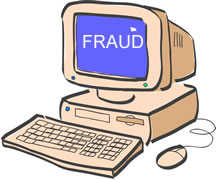Away from work, idling your time away on MSN, an unknown ID just informs you that you are the lucky dog who has been listed to be present an IPod, how do you response then? For the time being, it is happening all the time around us, and we are already got used to this.
 However, if the information is from an IM which you always trust, will there be something different? Since this Monday, a criminal group located in Hainan has stimulated a similar website with the fraud presenting information within it, in addition to successively sending cheating information to our customers.
However, if the information is from an IM which you always trust, will there be something different? Since this Monday, a criminal group located in Hainan has stimulated a similar website with the fraud presenting information within it, in addition to successively sending cheating information to our customers.
Fortunately, we Jctrans had found this at first time by convenient communication with our customers and made immediate response to solve: until now, none of our customers have been trapped into this fraud .
It is 3L (low cost/low risk and low technique barrier) that have make internet fraud common nowadays.
Tips:
Here are some of the major types of Internet fraud that law enforcement and regulatory authorities and consumer organizations are seeing:
Auction and Retail Schemes Online. According to the Federal Trade Commission and Internet Fraud Watch, fraudulent schemes appearing on online auction sites are the most frequently reported form of Internet fraud. These schemes, and similar schemes for online retail goods, typically purport to offer high-value items - ranging from Cartier® watches to computers to collectibles such as Beanie Babies® - that are likely to attract many consumers. These schemes induce their victims to send money for the promised items, but then deliver nothing or only an item far less valuable than what was promised (e.g., counterfeit or altered goods).
Business Opportunity/"Work-at-Home" Schemes Online. Fraudulent schemes often use the Internet to advertise purported business opportunities that will allow individuals to earn thousands of dollars a month in "work-at-home" ventures. These schemes typically require the individuals to pay anywhere from $35 to several hundred dollars or more, but fail to deliver the materials or information that would be needed to make the work-at-home opportunity a potentially viable business.
Identity Theft and Fraud. Some Internet fraud schemes also involve identity theft - the wrongful obtaining and using of someone else's personal data in some way that involves fraud or deception, typically for economic gain.
Credit-Card Schemes. Some Internet fraud schemes, which appear to be variations on the online auction schemes described earlier, involve the use of unlawfully obtained credit card numbers to order goods or services online.
Other Schemes. Some Web sites on the Internet have purported to offer those who want a "quick divorce" an opportunity to obtain a divorce in the Dominican Republic or other foreign countries for $1,000 or more, without even having to leave the United States. These sites often contain false, misleading, or legally inaccurate information about the process for obtaining such divorces (e.g., that neither spouse has to visit the country in which the divorce is being sought). Typically, people who have sent money to one of these schemes eventually receive false assurances that they are legally divorced. In fact, victims of the scheme have neither received legitimate legal services nor obtained valid divorces. People who are interested in obtaining a divorce, whether in the United States or elsewhere, should seek a lawyer with whom they can speak personally, and not rely solely on e-mail exchanges or online information.




 However, if the information is from an IM which you always trust, will there be something different? Since this Monday, a criminal group located in Hainan has stimulated a similar website with the fraud presenting information within it, in addition to successively sending cheating information to our customers.
However, if the information is from an IM which you always trust, will there be something different? Since this Monday, a criminal group located in Hainan has stimulated a similar website with the fraud presenting information within it, in addition to successively sending cheating information to our customers. RELATED
RELATED